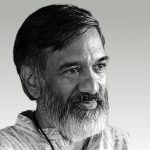Podcast Themes
Multiple perspectives on a topic that you are curious about!

Chris discusses Robert and Lynette’s parenting style on Roger. Not putting the child on a pedestal given his precocity, having goals to de-risk the path, handing out consequences when the child crosses the line and so on. He speaks about how they emphasized as much on raising a good human being as being committed to his growth as a tennis player.

David speaks about the few things we need to bear in mind as we help build the Interpersonal muscle with the kids. He underscores a couple of themes. Firstly, he suggests that we should avoid labeling a child. Instead, he suggests that we should provide feedback on a certain element of behavior. Secondly, he urges us to legitimize the feeling of a child rather than brushing it aside with a positive pep talk.

Ethan speaks about the role of his father in shaping his interests. He speaks about his father’s interest in the Bhagavad Gita and other elements of Easter Philosophy and how he would encourage Ethan to go inside to find the kernel of truth if something bad happens. He speaks about how some of that might have percolated down to him and his career choices.

Raghu reflects on his childhood and how his grandfather would read the Mahabharata or the Ramayana and also use those stories as an opportunity to share a self-reflective story about their life. He speaks about how this approach might have influenced his style of interacting with people and his teaching approach.

Ayelet speaks about the notion of Psychological reactance – the tendency to “not do” what you are told to do. She speaks specifically about how this shows up in the context of parenting and what we can do to avoid it.

Ayse speaks about how we can equip our children to design their life as they set sail on their respective journeys in a world filled with twists and turns. We connect the dots with an insight from Pramath Sinha on how we can help equip children to navigate the world of uncertainty.

Harsh speaks about how his children are charting their journey. He goes on to say that he would like them to make choices on their own terms based on their interests and skills.

Harsh speaks about how his personality was shaped in the early years. He speaks about diverse interests his family members had (ranging across Indian Classical Music, Sailing, Golf etc) that informed his thinking. He also speaks about values such as frugality, tolerance and consensus building one builds while growing up in a joint family construct.

Sally shares some insights for parents as we bring up our boys and girls. She specifically speaks about how we could get boys to listen more and girls to let go without being trapped by the quest for perfection which could be counter productive beyond a point.

Venkat shares his perspectives around how we can raise kids with a concern for the world around. She shares some thoughts on how we can engage with the child when he/she asks us uncomfortable questions. He also illustrates the criticality of reflection in slowly building compassion in the child.

Venkat speaks about the fact that he is a lucky recipient of the Ovarian Lottery and speaks about the environment in which he has grown up. He specifically speaks about the opportunity to interact with children from different segments of the society that helped him build a greater sense of empathy towards the world around him. He also speaks about some of the early choices in terms of discipline and how he ended up at IIM Ahmedabad.

Raj speaks about his thoughts around raising happy children and how parents need to walk the tightrope across discipline and love. He makes the case for leaning into love given a choice and speaks about the framework developed by Baum Rind who has studied this in detail.